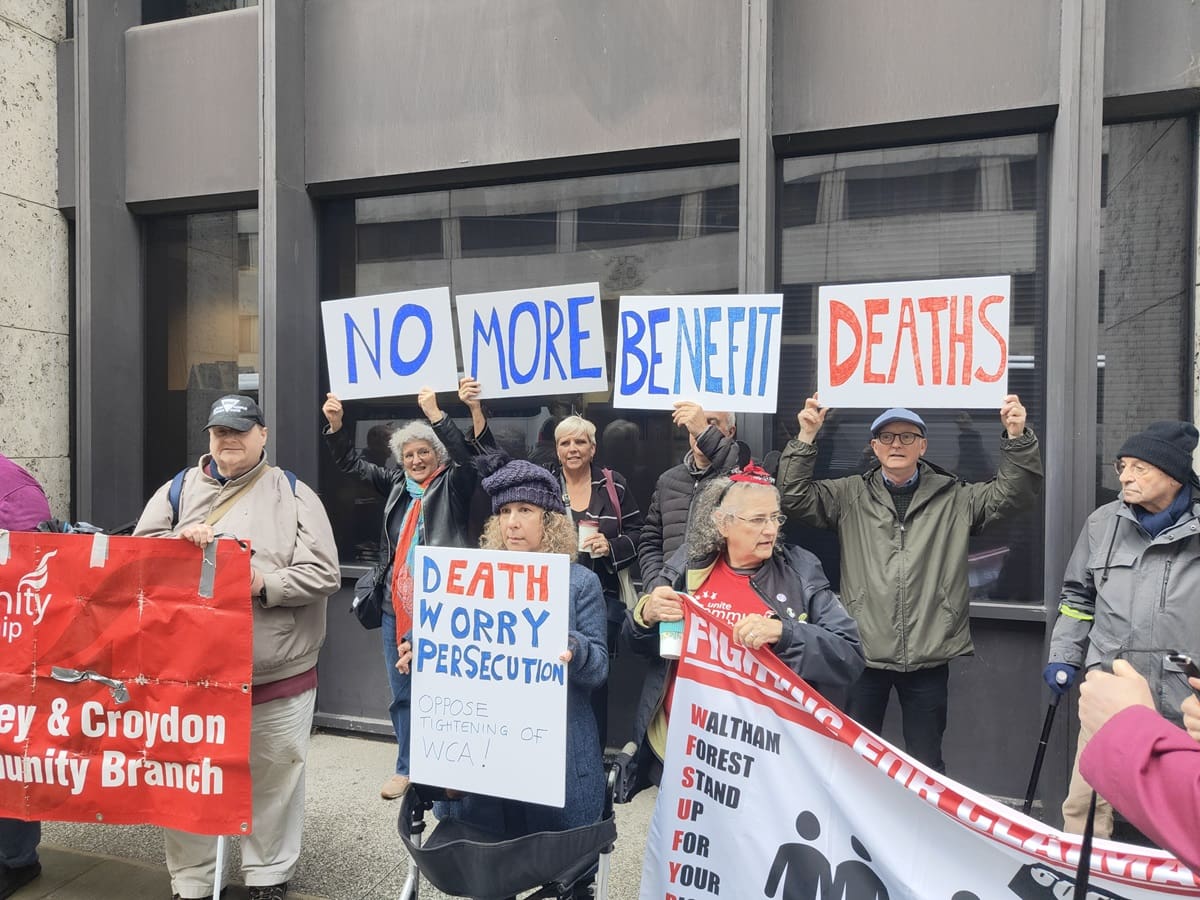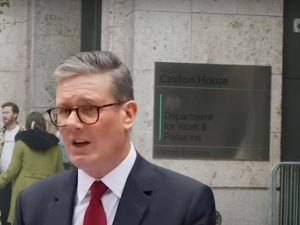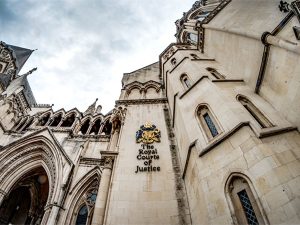The Equality and Human Rights Commission (EHRC) is investigating the Department for Work and Pensions (DWP)’s inhumane treatment of disabled people claiming benefits. However, there’s one big, glaring problem with this DWP benefit deaths inquiry. The EHRC has now confirmed that it will exclude disabled people and relatives of those who the DWP’s callous policies have killed.
DWP benefit deaths inquiry
As the Canary’s Rachel Charlton-Dailey reported in May:
The inquiry will focus on benefits assessments and how health decisions are made to award or deny disabled people benefits such as Personal Independence Payment (PIP) as well as the Work Capability Assessment that are used to force disabled unemployed people into work – or worse deny them benefits that allow them to live.
Ostensibly then, a key role of this inquiry will be to review the DWP’s treatment of disabled benefit claimants under UK equality law. Significantly, it launched the probe in response to concerns that disabled people’s organisations (DPOs) have repeatedly raised on benefit deaths.
This would of course be the tens of thousands of people who have died at the hands of the DWP. As the Canary’s Steve Topple previously detailed, between 2011 and 2021, this amounted to nearly 35,000 people who:
died either waiting for the DWP to sort their claims or after it said they were well enough to work or start moving towards work.
However, the EHRC’s inquiry is set to exclude both disabled individuals and people who lost their loved ones to the DWP’s cruel policies and systemic failures.
Disability News Service (DNS) broke the story that the EHRC had confirmed this as the case. DNS reported that the EHRC:
confirmed this week that it would not seek evidence from individuals because it did not consider this to be “proportionate”.
Instead, disabled people who claim benefits, and relatives of claimants who have died, will be expected to contact a “relevant organisation or representative such as an MP to provide their story”.
In other words, the inquiry will not take testimonies from individual members of the public directly. Instead, it intends to lump these together under DPOs’ responses.
There’s another catch
Moreover, as Charlton-Dailey also highlighted, the EHRC is conducting the inquiry over tight, seemingly arbitrary timeframes. As she wrote:
Whilst past and current ministers and senior officials will be called to explain themselves, there’s of course a catch. The scope of the inquiry is only from 2021 to now.
What this means, as she also explained, is that some ministers who presided over these unconscionable, avoidable deaths, will be let off the hook entirely. This includes a large portions of Therese Coffey’s time as DWP boss. Gallingly, it also means that Iain Duncan Smith – arguable architect-in-chief who set the DWP’s brutal wheels in motion – will avoid scrutiny.
To make matters worse, the timeframe also means that the EHRC will likely exclude the deaths before this date. Charlton-Dailey pointed out this includes some of the better-publicly-known cases of disabled benefit claimant deaths such as:
Errol Graham who starved to death in 2018 after his payments were stopped or Michael O’Sullivan who died by suicide after being declared fit for work.
The EHRC’s response to DNS shed more light on this, but offered little reassurance. DNS wrote that:
But when asked this week about the earlier cases, the spokesperson pointed to the inquiry’s terms of reference, which state that the investigation will look at earlier periods “if relevant, necessary and proportionate”.
He said: “This allows investigators to consider evidence from earlier than 2021 if appropriate and relevant.”
Unsurprisingly, the spokesperson did not elaborate on exactly what would constitute “appropriate and relevant” in this instance.
A pointless tick-box investigation?
All this might understandably have people scratching their heads wondering: what exactly is the point of this inquiry then? Unfortunately, it appears to be another tepid tick-box investigation, which will make no meaningful real-world difference for disabled people.
Of course, the EHRC’s independence from the toxic Tory government has been questionable at the best of times. Multiple former staff members at the EHRC have previously called out its purported collusion in toeing the Conservative’s political line. Notably, the government appointed the commission’s current chair Kishwer Falkner. She has headed the EHRC’s transphobic positions through its inquiries.
The EHRC’s decision now to exclude disabled people and relatives of deceased claimants calls its impartiality into question again.
And incidentally, a UN independent expert even called the commission out on some of its decisions with regards to trans people’s rights. The parallel here of course, is that UN’s top body on disability rights has just this April slammed the DWP’s treatment of disabled people too. In fact, in its scathing report, it lambasted the “systematic violations” of disabled people’s human rights. By contrast however, its inquiry did include testimony from disabled folks and the loved ones of deceased claimants.
At the end of the day then, this DWP benefit deaths inquiry will be another exercise in letting the Tories off the hook. Will the next incoming government heed its findings? With the two major parties willfully neglecting disabled people or otherwise fixated on punishing them for even daring to exist, it’s doubtful. When it comes down to it, it’s not as if either party is in the habit of listening to inquiries anyway.
Featured image via the Canary




